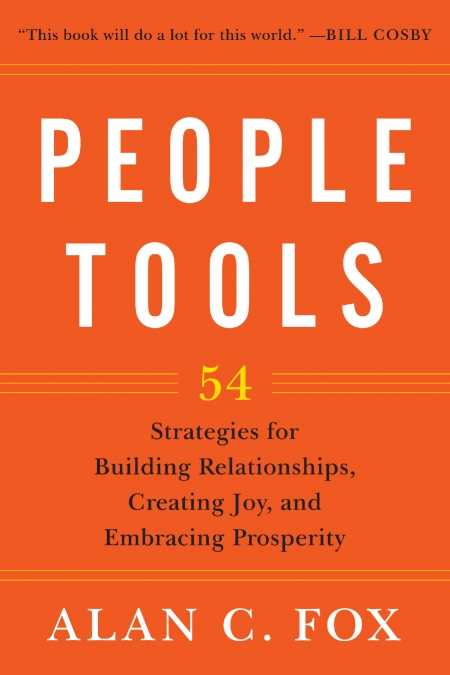People Tools
54 Strategies for Building Relationships, Creating Joy, and Embracing Prosperity
These little gems form the basis of a sensible, realistic view of the world from a successful real estate CEO.
The premise of real estate CEO Alan Fox’s book, People Tools, is not complicated: it is a compilation of behavioral techniques Fox has used over the years to cope with other people and life’s ups and downs. Each tool is a tiny nugget of insight that, at first glance, seems so obvious it may not warrant much attention on its own. Yet, when several of these “people tools” are viewed in tandem, one begins to understand their power. “Together,” writes Fox, “they are like night vision binoculars peering into the darkness of your own motivations and actions, as well as the motivations and actions of others.”
For example, People Tool 6, “The Belt Buckle,” is derived from a professional football player, a defensive linesman who said great runners could fake with their eyes, heads, and shoulders, but “they can’t fake with their belt buckle.” Fox applies this to life in a meaningful way. He writes, “I want to rely on both your words and your actions, and I focus on your belt buckle because I want to be safe. …I can be tricked by words, but I’m seldom fooled by actions.” “Shrink the Glass,” People Tool 14, is another example. Here, Fox offers his take on the old concept of the glass half full (the optimist) versus the glass half empty (the pessimist). His idea is to “shrink the glass so that it is, in fact, full. I don’t have to be either a pessimist or an optimist. I just want to be happy.” Fox says shrinking the glass, or reducing our expectations, makes life’s experiences far more enjoyable, because “our reaction to those experiences is subjective, and largely within our control.”
Clearly, People Tools is as much a philosophical perspective on how to live life in a positive way as it is a collection of succinct strategies. Fox writes with a voice that exudes confidence, integrity, and truthfulness, weaving the occasional relevant story into the text. He demonstrates lessons he has learned from his own mistakes, which both personalizes the book and makes it easier for the reader to acknowledge his own shortcomings. Fox’s insight and reflection play a large role in making his tools all the more relevant and impactful. Thankfully, Fox also overlays the book with a good dose of self-effacing humor, suggesting that he is comfortable in his own skin.
Alan Fox’s work is filled with tools that, individually, appear to be deceptively simple. Taken together, however, these little gems form the basis of a sensible, realistic view of the world—a potpourri from which the reader can choose in order to make his or her own life more fulfilling.
Reviewed by
Barry Silverstein
Disclosure: This article is not an endorsement, but a review. The publisher of this book provided free copies of the book and paid a small fee to have their book reviewed by a professional reviewer. Foreword Reviews and Clarion Reviews make no guarantee that the publisher will receive a positive review. Foreword Magazine, Inc. is disclosing this in accordance with the Federal Trade Commission’s 16 CFR, Part 255.


